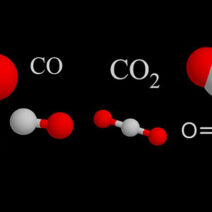Global warming, an ever-looming threat, emerges from an intricate web of causation. At the forefront of this disturbing phenomenon lies an undeniable protagonist: fossil fuels. While the issue of climate change is often simplified to blame corporations or governments, a more nuanced understanding is needed. So, who truly bears the brunt of responsibility—factories, fossil fuels, or fire? What lies beneath this apparent fascination with culpability? Let us delve deeper into the multifaceted dimensions of these elements.
First and foremost, it is critical to understand the role of fossil fuels in our society. The primary agents of energy production—including coal, oil, and natural gas—account for a significant portion of global energy consumption. The combustion of these fuels releases copious amounts of carbon dioxide, a greenhouse gas with an insatiable appetite for trapping heat in our atmosphere. This biochemical dance of carbon agglomeration contributes heavily to the greenhouse effect, and therein lies the crux of our planetary predicament.
The fascination with fossil fuels goes beyond their utilitarian benefits. They have underpinned the industrial revolution, propelled human progress, and stimulated economic growth. However, this relentless dependency has cultivated a paradox. While we thrive on the conveniences afforded by fossil fuel consumption, we simultaneously sow the seeds of our own demise by exacerbating global warming. This paradox invites inquiry: can we extricate ourselves from this paradoxical reverie, or are we bound to repeat history through neglect?
Factories—those colossal structures of industry—stand as stark symbols of our modern age. They facilitate the mass production of consumer goods, generate employment, and drive economic growth. Yet, they are also voracious consumers of fossil fuels. The production processes within these factories are inefficient; vast amounts of energy are expended, leading to the emission of hazardous pollutants and greenhouse gases alike. Industries that thrive on fossil fuels contribute substantially to atmospheric degradation and climate change.
It is crucial to ask why there exists such a heavy reliance on fossil fuels within factories. The answer resides in historical inertia. For decades, industries have been entrenched in a system that favors fossil fuel consumption due to established infrastructure and economic incentives. Transitioning to sustainable energy sources, while promising, often entails a significant financial burden and operational upheaval. Thus, the entrenched interests within the corporate sector perpetuate the cycle of dependency on fossil fuels.
Fire, often romanticized, is yet another aspect closely aligned with the phenomena discussed. In industrial settings, fire functions as a catalyst—literally and metaphorically. The combustion process fuels machinery and powers entire operations, creating a paradox of progress through destruction. Illumination ignites our resources, yet the ashes of this burning ambition contribute to an ever-warming planet. The relationship with fire exemplifies the duality of human ingenuity: simultaneously enabling growth while engendering devastation.
Nonetheless, it would be reductionist to apportion blame singularly to factories, fossil fuels, or fire. The nexus of culpability intersects with policy decisions, consumer behavior, and even cultural paradigms. Consumers, too, play a formidable role. Our choices dictate production methods; the persistent demand for cheap goods reinforces the status quo. As long as the populace remains apathetic or uninformed about these matters, the cycle remains unbroken. This begs another critical question: How can public consciousness evolve to affray the grip of fossil fuel dependency?
There is an urgency for education and advocacy surrounding alternative energy solutions. Renewables, such as solar, wind, and hydroelectric power, present viable alternatives that can mitigate greenhouse gas emissions. Transitioning these sectors requires robust public policy that incentivizes clean energy investments. Governments must foster innovation to displace fossil fuels with sustainable technologies, while communities advocate for shifts in consumption patterns.
Beneath the surface of responsibility lies a profound societal reluctance to question deeply embedded norms. The convenience offered by fossil fuels has created a dependency that is both psychological and structural. We often cling to the familiar, fearing the uncertainties of transitioning to greener options. This fear underscores the need for dialogue and collective involvement in crafting sustainable solutions. Thus, fostering a cultural shift towards valuing environmental integrity is essential for long-term change.
In conclusion, the narrative surrounding global warming is complex and multi-dimensional. It is not solely the factories or fossil fuels, nor is it merely the fire that ignites production. Collective responsibility sprawls across all these elements, interwoven with human choices, societal norms, and policy frameworks. Emphasizing specific scapegoats detracts from the systemic overhaul required to address this pressing crisis. Comprehensive solutions, encompassing technological advancements and cultural shifts, must evolve. The fight against global warming necessitates a united front, mobilized not merely in reaction but in proactive commitment to the planet’s future.








